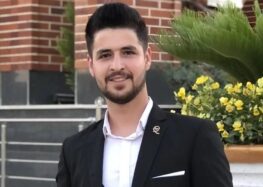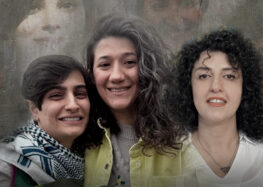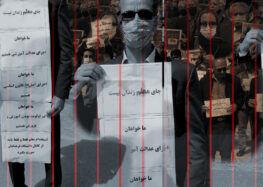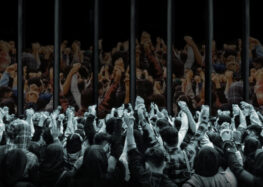Second Name Revealed in Shooting Deaths Amid Sanandaj Protests
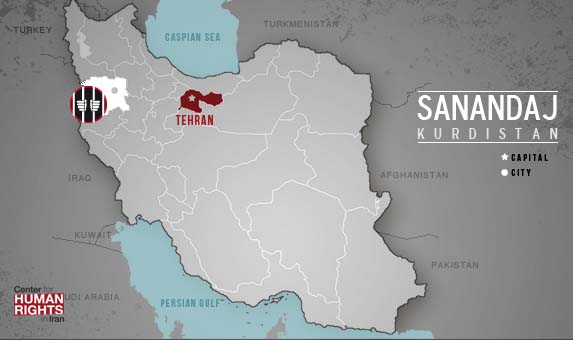
Intelligence Ministry Pressures Families To Refuse Media Interviews
Kianoosh Zandi, 24, has been named the second victim in a shooting case involving conflicting accounts over how and why two young men were killed by security forces amid protests in the city of Sanandaj, the capital of Iran’s Kurdistan Province, in early January 2018.
On January 13, agents of the Intelligence Ministry travelled to the home where Zandi lived with his mother, informed her of her son’s death, took her to the city’s Behesht Mohammadi Cemetery and buried her son’s body the same day, a source close to the family told the Center for Human Rights in Iran (CHRI) on January 19.
The agents told the mother to state that her son had died in a car accident and warned her not to speak to the media, according to the source, who requested anonymity for fear of reprisals by the Intelligence Ministry.
Zandi’s father, Ataollah Zandi, has been imprisoned for many years on unknown charges.
Zandi disappeared on January 2 amid the anti-government protests in Sanandaj. CHRI’s investigations, based on eyewitness accounts, indicate that Zandi was with Saro Ghahremani when their car was riddled with bullets in front of the Sanandaj bus terminal.
Officials have released little details about the case and it is not known whether the men died in custody or at the hospital.
Ghahremani, 24, died sometime between January 2 and January 13, the day his body was delivered to his family. The information was publicized by the Committee for the Defense of Detainees on January 13.
Ghahremani’s father was forced by agents of the Intelligence Ministry to state in front of a camera that his son was a member of the outlawed Komala Party of Iranian Kurdistan and that he had been killed in an armed confrontation with security forces. His statement was then aired on state television on January 13 by the Islamic Republic of Iran Broadcasting (IRIB) service, which has a documented history of broadcasting forced confessions.
A source who spoke to CHRI about the case denied the allegation and noted that Ghahremani had never been an armed member of the group.
“The governor of Sanandaj said Saro had been imprisoned for carrying a gun but we all know that in the Islamic Republic of Iran if you are arrested with a weapon, the punishment is death or life in prison,” said the source, who requested anonymity for security reasons.
“But Saro was released after less than two years in prison. Why? Because he had been charged with being a Komala sympathizer, not an armed member,” added the source.
The governor of Sanandaj, Mohammad Ebrahim Zarei, has claimed that the young men were armed, an accusation vehemently denied by their families.
“This man, along with one of his contacts, was being pursued by security agents,” he said. “They ignored orders to stop and fled the scene while shooting at the agents and were subsequently killed in the clash.”
According to both the victims’ families and eyewitnesses, neither of the men were armed.
“Saro left the house on the night of January 2 and did not come back,” said a family source in an interview with CHRI. “His relatives knew about his Komala connections and thought that he might have left the country. They didn’t go to the police in case it might cause a problem. But four or five days later, they went to the police who told them they knew nothing.”
Continued the source: “We were all worried until finally, on January 13, two agents from the Intelligence Ministry came to Saro’s father’s home at night and told him to come and accept the delivery of his son’s body. They did not explain what had happened or how he had died. Saro’s parents got scared and refused to leave the house at night. They didn’t believe it was true. The same two agents came back in the morning and said the parents had to come with them.”
“They took Saro’s parents to the medical examiner’s office in Sanandaj and showed them the body,” said the source.
“They took his parents to Behesht Mohammadi Cemetery and buried Saro in a grave and returned them to their home and warned them not to talk to anyone,” added the source.
The Committee for the Defense of Detainees reported on January 13 via Twitter that only Ghahremani’s parents were allowed to attend his burial.



